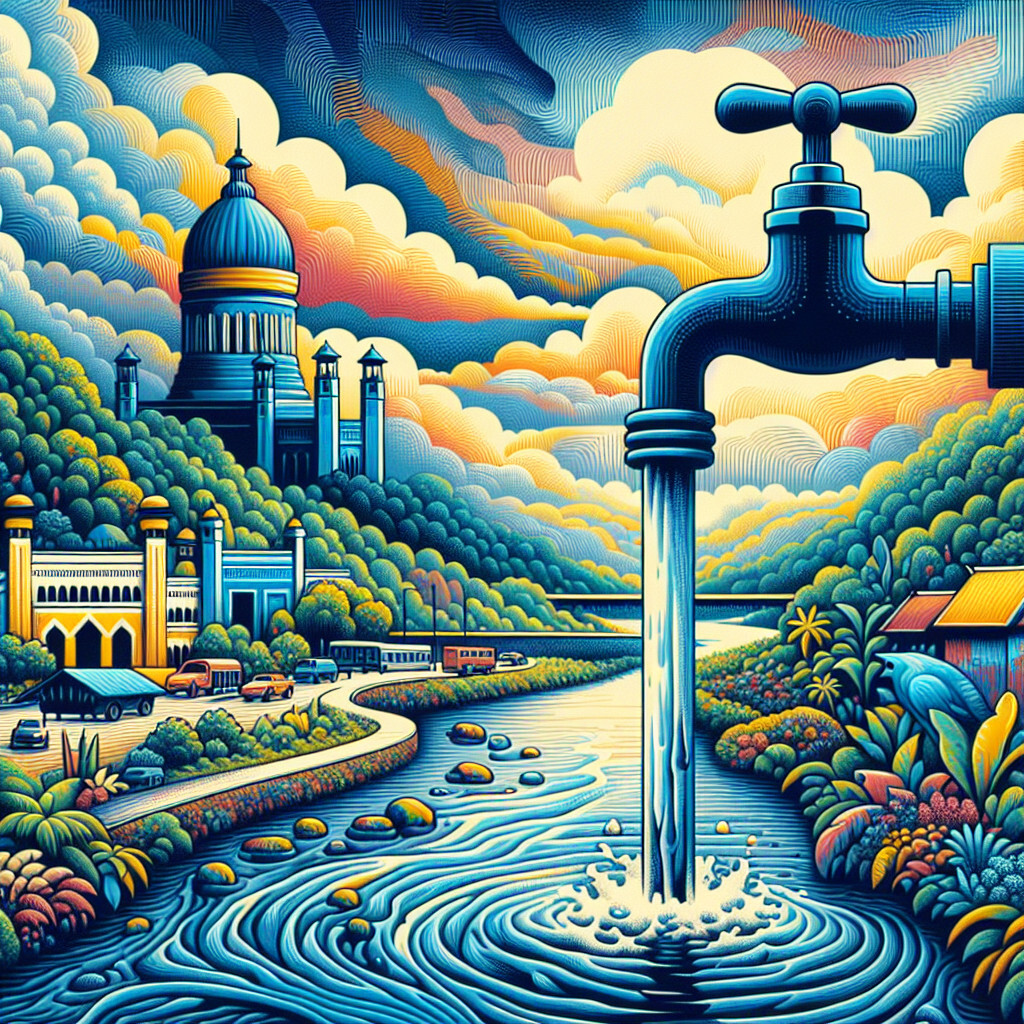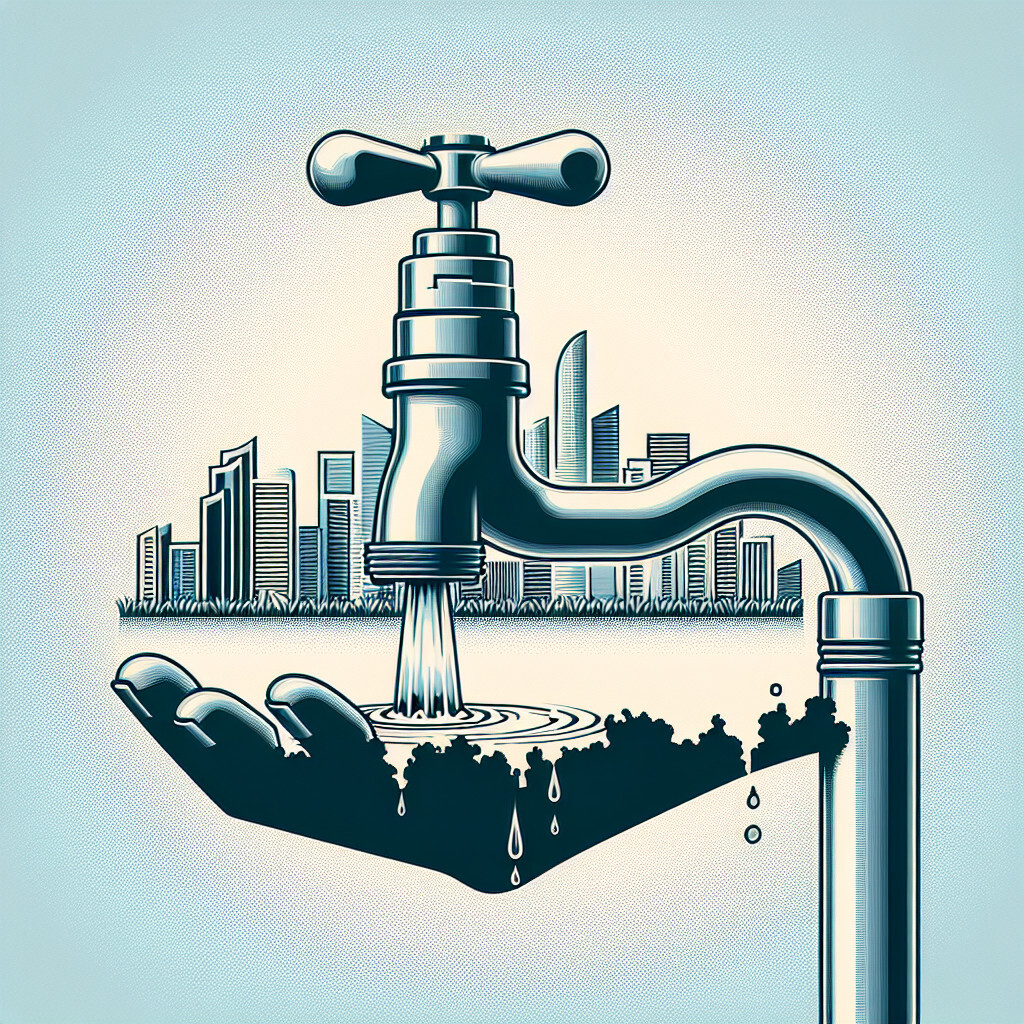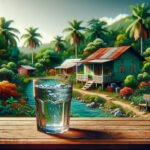-
Table of Contents
“Brunei’s Tap Water: Pristine, Safe, and Ready to Drink!”
Introduction

The tap water in Brunei is generally safe to drink as it meets the World Health Organization’s guidelines for drinking water quality. The country’s water supply is managed by the Public Works Department, which ensures the water is treated and purified before it reaches households. However, the taste and quality can vary depending on the location within the country. Some residents prefer to use additional filtration systems or opt for bottled water for drinking purposes.
Understanding the Quality of Tap Water in Brunei
Brunei, a small nation on the island of Borneo, is known for its rich natural resources and high standard of living. One aspect of life in Brunei that often goes unnoticed, however, is the quality of its tap water. The tap water in Brunei is generally safe to drink and meets international standards for potability. This is due to the country’s rigorous water treatment processes and stringent quality control measures.
Brunei’s tap water is sourced primarily from surface water, including rivers and reservoirs. The water is then treated at various water treatment plants across the country. These plants employ a multi-step process that includes coagulation, sedimentation, filtration, and disinfection to remove impurities and harmful microorganisms. The treated water is then distributed to households and businesses through a network of pipes.
The quality of tap water in Brunei is monitored by the Public Works Department (PWD) under the Ministry of Development. The PWD conducts regular tests to ensure that the water meets the guidelines set by the World Health Organization (WHO). These guidelines specify the acceptable levels of various physical, chemical, and microbiological parameters in drinking water. The PWD’s tests cover a wide range of parameters, including pH, turbidity, residual chlorine, and the presence of harmful bacteria such as E. coli.
The results of these tests have consistently shown that the tap water in Brunei is safe to drink. The water typically has a pH level between 6.5 and 8.5, which is within the WHO’s recommended range. The turbidity of the water is also usually low, indicating that it is clear and free of suspended particles. The residual chlorine level is maintained at a safe level to prevent the growth of harmful bacteria. Moreover, tests for E. coli and other harmful bacteria have consistently returned negative results.
Despite the high quality of tap water in Brunei, some residents prefer to drink bottled water or use water filters at home. This is often due to personal preference or misconceptions about the safety of tap water. However, the PWD has assured the public that the tap water is safe to drink and is regularly tested for quality. The department also encourages residents to report any issues with the taste, smell, or appearance of the tap water so that they can be promptly addressed.
In conclusion, the tap water in Brunei is generally safe to drink and meets international standards for potability. This is a testament to the country’s effective water treatment processes and stringent quality control measures. While some residents may prefer bottled water or filtered water, the tap water is a safe and convenient option for daily consumption. As with any public utility, it is important for residents to stay informed about the quality of their tap water and to report any issues to the relevant authorities.
The Process of Tap Water Treatment in Brunei
Brunei, a small nation on the island of Borneo, is known for its rich natural resources and high standard of living. One of the key aspects contributing to this high standard of living is the quality of tap water in the country. The tap water in Brunei is safe to drink and is treated through a rigorous process to ensure its cleanliness and safety.
The process of tap water treatment in Brunei begins with the collection of raw water from various sources such as rivers, reservoirs, and underground wells. This raw water is then transported to water treatment plants where it undergoes a series of treatment processes to remove any impurities and harmful substances.
The first step in the treatment process is coagulation and flocculation. During this stage, chemicals are added to the raw water to form tiny sticky particles called “floc” which attract the dirt particles. The combined weight of the dirt and the chemicals become heavy enough to sink to the bottom during the sedimentation process.
Following sedimentation, the clear water on top will pass through filters of varying compositions and pore sizes to remove dissolved particles such as dust, parasites, bacteria, viruses, and chemicals. The filtration process is crucial in ensuring the safety of the water as it removes harmful substances that can cause waterborne diseases.
After filtration, the water is disinfected to kill any remaining bacteria or viruses. In Brunei, this is typically done using chlorine or chloramines. This disinfection process is a critical step in water treatment as it ensures that the water is safe to drink and free from harmful microorganisms.
Once the water has been disinfected, it is stored in clean and secure reservoirs until it is needed. From these reservoirs, the water is distributed to homes, businesses, and other establishments through a network of pipes. Regular testing is conducted throughout this distribution process to ensure that the water maintains its high quality and safety standards.
The Department of Water Services under the Ministry of Development is responsible for the management and operation of water supply services in Brunei. They are committed to providing safe and clean water to all residents and have implemented strict quality control measures to ensure this. The water quality in Brunei meets the guidelines set by the World Health Organization (WHO), making it safe for consumption without the need for boiling or additional treatment.
In addition to the rigorous treatment process, the government of Brunei also invests in regular maintenance and upgrades of the water supply infrastructure. This includes the replacement of old pipes and the installation of new treatment facilities to ensure the continued provision of clean and safe tap water.
In conclusion, the tap water in Brunei is treated through a comprehensive process involving coagulation, sedimentation, filtration, and disinfection. This process, along with regular testing and infrastructure maintenance, ensures that the tap water in Brunei is of high quality and safe for consumption. The commitment of the Bruneian government to providing clean and safe water reflects the country’s overall high standard of living and its dedication to the health and well-being of its residents.
Health Implications of Drinking Tap Water in Brunei
Brunei, a small nation on the island of Borneo, is known for its rich natural resources and high standard of living. One of the aspects that contribute to this high standard of living is the quality of tap water. The tap water in Brunei is generally safe to drink and meets the World Health Organization’s guidelines for drinking water quality. However, like any other source of water, it is not entirely free from potential health implications.
The tap water in Brunei is treated and purified using advanced technology, ensuring that it is free from harmful bacteria and viruses. This is crucial as waterborne diseases such as cholera, typhoid, and dysentery can be life-threatening. The absence of these pathogens in Brunei’s tap water significantly reduces the risk of these diseases, contributing to the overall health and wellbeing of its residents.
However, despite the rigorous treatment process, the tap water in Brunei may still contain trace amounts of chemicals. These chemicals are often a result of the disinfection process, where substances like chlorine are used to kill bacteria and other microorganisms. While these chemicals are generally present in safe amounts, prolonged exposure can potentially lead to health issues. For instance, some studies suggest that long-term consumption of chlorinated water may increase the risk of certain types of cancer, including bladder and colorectal cancer.
In addition to chemicals from the disinfection process, the tap water in Brunei may also contain naturally occurring substances like minerals. While minerals like calcium and magnesium are beneficial for health, excessive amounts can lead to health problems. For example, high levels of calcium can contribute to kidney stones, while excessive magnesium can cause gastrointestinal issues.
Furthermore, the quality of tap water can also be affected by the condition of the water supply infrastructure. Old and corroded pipes can leach harmful substances into the water, such as lead, which can have serious health implications. Lead exposure can lead to a range of health problems, from cognitive impairment in children to cardiovascular issues in adults.
Despite these potential health implications, it’s important to note that the tap water in Brunei is regularly tested and monitored to ensure it meets safety standards. The government of Brunei takes water quality seriously and has implemented strict regulations to ensure the safety of its tap water. Moreover, the risk of health issues can be further mitigated by using water filters at home, which can remove any remaining chemicals or minerals.
In conclusion, while the tap water in Brunei is generally safe to drink, it is not entirely free from potential health implications. The presence of chemicals from the disinfection process, naturally occurring minerals, and substances from old pipes can potentially pose health risks. However, these risks are relatively low and can be further reduced by using water filters. Therefore, residents and visitors in Brunei can generally feel confident in the safety of the tap water, while also being aware of the potential health implications.
Comparative Analysis: Tap Water in Brunei vs Other Countries
Brunei, a small nation on the island of Borneo, is known for its rich natural resources and high standard of living. One aspect of life in Brunei that often goes unnoticed, however, is the quality of its tap water. In comparison to other countries, Brunei’s tap water is of exceptional quality, thanks to the country’s stringent water treatment processes and abundant natural water sources.
Brunei’s tap water is sourced primarily from surface water, including rivers and reservoirs, and is treated at water treatment plants before being distributed to households. The treatment process involves several stages, including coagulation, sedimentation, filtration, and disinfection, to ensure that the water is free from harmful substances and safe for consumption. The Department of Water Services in Brunei regularly monitors the quality of tap water and conducts tests for a range of parameters, including pH, turbidity, and microbial contamination. The results consistently show that Brunei’s tap water meets, and often exceeds, the World Health Organization’s guidelines for drinking water quality.
In contrast, the quality of tap water in many other countries can vary significantly. In developed countries like the United States and the United Kingdom, tap water is generally safe to drink, although there have been instances of contamination due to aging infrastructure or environmental pollution. In developing countries, however, access to clean and safe drinking water can be a major challenge. According to the World Health Organization, nearly 2 billion people worldwide rely on a drinking water source that is contaminated with feces, leading to a high risk of waterborne diseases.
Even in countries where tap water is considered safe to drink, many people choose to drink bottled water due to concerns about the taste or safety of tap water. This is not the case in Brunei, where the tap water is not only safe to drink but also tastes good. This can be attributed to the country’s pristine natural environment and the absence of heavy industrial pollution, which can affect the taste and safety of tap water.
Furthermore, the government of Brunei has made significant investments in water infrastructure to ensure the reliability and sustainability of water supply. This includes the construction of new water treatment plants and the upgrading of existing facilities, as well as the implementation of water conservation measures. These efforts have resulted in a high level of service reliability, with few instances of water supply disruptions or water quality issues.
In conclusion, the tap water in Brunei is of high quality and compares favorably with that in many other countries. This is due to the country’s rigorous water treatment processes, abundant natural water sources, and strong commitment to maintaining and improving its water infrastructure. While the quality of tap water can vary from one country to another, Brunei stands out as a shining example of how a country can successfully manage its water resources to ensure the provision of clean, safe, and tasty tap water for its residents.
Q&A
1. Question: Is the tap water in Brunei safe to drink?
Answer: Yes, the tap water in Brunei is generally safe to drink as it meets World Health Organization standards.
2. Question: How is the quality of tap water in Brunei?
Answer: The quality of tap water in Brunei is high. It is treated and filtered to remove impurities and contaminants.
3. Question: Is bottled water more popular than tap water in Brunei?
Answer: Despite the tap water being safe to drink, many locals and tourists still prefer bottled water due to personal preferences and perceptions about tap water.
4. Question: Are there any common issues with the tap water in Brunei?
Answer: There are no major issues with the tap water in Brunei. However, in some remote areas, the water may have a slightly different taste due to the different treatment processes.
Conclusion
The tap water in Brunei is generally safe to drink as it meets the World Health Organization’s guidelines for drinking water quality. However, it is recommended to boil the water or use a filter for extra precaution, especially for those with sensitive stomachs.






